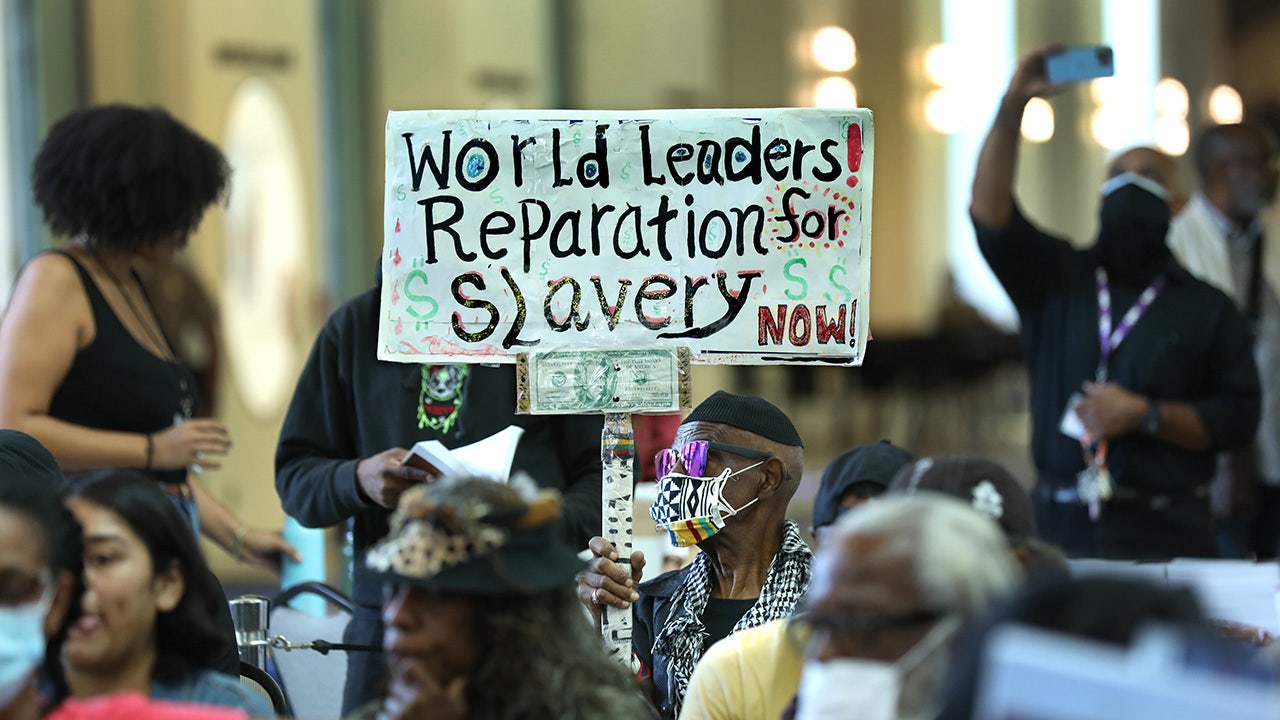
From criminal justice reform to the best method of teaching American history, race remains a highly contentious issue in American politics. On one side of this volatile debate, several cities and states have initiated discussions on reparations: a form of compensation to African Americans for the injustices of slavery and past mistreatment.
Most recently, a California task force released a report that suggests cash payments of up to $1.2 million for millions of African Americans currently residing in or previously lived in the state. This recommendation closely follows a similar proposal in San Francisco, where the local Board of Supervisors endorsed an even more extravagant plan to provide a one-time payment of $5 million to every Black resident of the city, along with additional benefits.
While some may find the idea far-fetched, it is essential not to dismiss reparations outright. Although certain proposals may be difficult to take seriously, the belief that America has a moral obligation to African Americans for centuries of mistreatment is longstanding. The past continues to shape the present, and disparities in opportunities persist for the descendants of slavery and segregation victims.
BILL MAHER COMPARES WOKE LIBERALS TO KKK ON JOE ROGAN SHOW: THEY SEE RACE ‘FIRST AND FOREMOST’
These persistent inequalities are reflected in statistics that show 26% of African Americans living in poverty, compared to only 10% of White Americans, and 36% of African American children growing up in poverty.
Poverty rates for African Americans remain higher than those for White Americans, regardless of education, work effort, or family structure. Despite significant efforts by the United States to address the history of unequal treatment, economic disparities still exist.
Moreover, the payment of reparations should not be seen as an imposition of collective guilt on White Americans; rather, it would be a restitution for explicit wrongs committed or supported by the government. As seen in a common example, if someone’s car is damaged due to the city’s failure to repair a pothole, the car owner can seek restitution for the damages, even if it requires taxes paid by residents unassociated with road maintenance. The government’s actions towards African Americans similarly hold a collective responsibility.
However, regardless of the moral justifications for restitution, reparations are not an effective solution to bring about substantial and lasting improvements for African Americans. Implementing a large-scale reparations program would pose insurmountable practical challenges, including determining who should be compensated, in what amount, and in what manner.
Most proposals on the table amount to little more than tax-and-spend wealth redistribution schemes that would not significantly expand economic opportunities. Solving the problems facing poorer African Americans requires more than simply rebranding existing initiatives as reparations.
Furthermore, the taxes or debt necessary to fund billions or trillions of dollars in reparation payments would harm the economy and impede economic growth for all Americans. The negative effects, such as higher unemployment, slower wage growth, and reduced entrepreneurship, would not benefit African Americans. The objective of any reparative policy should be to integrate people of color into a thriving economy, rather than hinder economic growth itself.
Finally, it is crucial to acknowledge that reparations are a divisive issue, partly because individuals who would be expected to pay for past sins were not directly responsible for them. As it stands, 80% of White Americans oppose reparations, whereas 77% of Black Americans support them. The majority of Asian Americans and Latinos also oppose reparations.
CLICK HERE FOR MORE FOX NEWS OPINION
While politics do not have to be a zero-sum game, there are limits to political capital. Is advocating for reparations the most productive use of that capital?
There are more effective policies that can address the legacy of slavery and segregation, level the playing field, and create opportunities for African Americans, especially those at the bottom of the economic ladder today.
These reforms include eliminating exclusionary zoning, police reform, reducing mass incarceration, giving parents greater control over school choice, and promoting Black entrepreneurship.
Importantly, these reforms not only benefit African Americans but also help low-income and struggling Americans of all races. They have the potential to unite a broad, multiracial, and cross-ideological coalition that can bring about lasting change.
There is undoubtedly a moral debt owed to African Americans, but reparations are not the solution.
CLICK HERE TO READ MORE BY MICHAEL TANNER
Denial of responsibility! Vigour Times is an automatic aggregator of Global media. In each content, the hyperlink to the primary source is specified. All trademarks belong to their rightful owners, and all materials to their authors. For any complaint, please reach us at – [email protected]. We will take necessary action within 24 hours.


